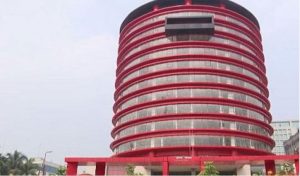Dhaka, Dec 12 – The Bangladesh Delta Plan 2100 came under serious scrutiny at an international seminar organized in Dhaka on Friday. Speakers at the seminar said that a plan modelled on the Netherlands would not work in Bangladesh because while the Dutch Delta was stable while the Bangladesh Delta, the world’s largest, was very active and dynamic. Speakers at an international seminar on Dhaka on Friday suggested the holding of public hearings on Bangladesh Delta Plan 2100 — a long-term strategy to prevent floods and soil erosion, manage rivers and wastes, and supply water in the century. Bangladesh Poribesh Andolon (BAPA) and Bangladesh Environment Network (BEN) organized the seminar at the Krishibid Institution Bangladesh auditorium.
Founder of the Bishwo Shahitto Kendro Chairman Prof Abdullah Abu Sayeed in told the seminar that environmental and climate change is disastrous news for us. If mankind fails to win the war, if they fail to prevent minimize the diverse impacts, the damages will be huge, he said.
Prof Sayeed believes holding of public hearings is necessary before finalizing the long-term plan. “The plan has been drafted to tackle an enormous issue. I think the stakeholders can vastly contribute to it.
Bangladesh will need around 2.5 percent of its GDP every year to implement the plan. It will need $29.6 billion annually for implementation until 2031. The experts laid emphasis on ensuring expenditure in the appropriate sector. Former UGC chairman Prof Nazrul Islam said: “We have to think about the ecology besides economic and social sectors. The ecosystem also requires a well planned approach.”
Senior Secretary Shamsul Alam, one of the planners from Planning Commission, was also present at the seminar. He said they followed the Dutch model while drafting the plan. Opinion has been taken from more than 3000 experts.
“This is not a static plan as it can be rearranged,” he added. The government is calling ‘hotspots’ the places that have been prioritized in the plan. The six hotspots are the coastal areas, Varendra or Barind and drought-prone areas, Haor or backswamps and flood-prone areas, hilly areas, river and estuaries region and urban areas. – GW News Desk




